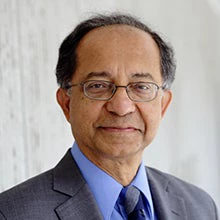Suppose a political leader implements a policy that results in an economic crisis in the sense that, had he not implemented the policy in this instance, the crisis would not have occurred. In such a situation we are inclined to come down heavily on the leader’s policy and castigate the decision. This would however be a mistake.
To see the mistake—as to see so many things in life—it is worth converting this to a more abstract problem. A (fair) dice is about to be rolled; but before that you have to choose between A and B. If you choose A and the dice outcome is 1 or 2, or you choose B and the dice outcome is 3, 4, 5 or 6, all will be well. Otherwise, there is a major food crisis. What should you do? A little thought makes it clear that you should choose B. If after that the dice shows up on 1, there will of course be a crisis, but that disastrous outcome would not render your decision wrong. Indeed, if you had to play the game again, you should make the same choice.
It is the existence of risk (in the above example the rolling of the dice) that drives the wedge between a good decision and a good outcome, thereby illustrating how risk complicates not only the making of policy but also the retrospective evaluation of policy.
At the same time, risk permeates life and so there is no getting away from it. How we handle this ubiquitous feature of our existence can make a big difference to how we lead our lives. This is nowhere more evident than in crafting development policy. With this in mind, the theme of the World Development Report 2014 will be managing risk for development. This is an apt choice given the series of economic shocks, global crises and major natural disasters the planet has grappled with over the past four years.
The role that risk management plays in development and poverty reduction has not been studied adequately at the World Bank and maybe everywhere. Many people tend to focus on specific risks like financial crises, droughts or natural disasters when they arise, rather than on the process of risk management. The team working on the Report is starting out from the premise that responsible and efficient risk management is crucial not only to mitigate the effects of shocks and hazards but also to enable individuals, households, and entrepreneurs to pursue new opportunities for growth and prosperity.
It has to be kept in mind that risk management must not be equated with risk avoidance. Excessive risk avoidance can stunt growth and progress. It is arguable that if a person is old, a frequent traveler, and has never missed a flight, he or she has been going to the airport too early and has lost a lot of time. I should warn the reader that this does not mean that you should quickly miss a flight and set the record right. It simply highlights that, in an environment with risk, it is wrong to be single-minded in avoiding bad outcomes. The secret is to manage risk right and this is of course easier said than done.
Not surprisingly, it will be a challenging task to develop clear and implementable policy recommendations for a range of development actors, including international financial institutions, the donor community, governments, NGOs, and civil society.
Devising practical steps for improving risk management at the individual, family, enterprise, national and global levels is both worthy and essential, particularly when risks may lead to irreversible and long-term losses, but a single-minded avoidance of risk could, in turn, blight opportunities.
The production of the Report is still in the early stages, but the team has already undertaken an initial set of consultations both internally and externally, including with the Global Network of Civil Society Organizations for Disaster Reduction, the Red Cross and Red Crescent Societies, the Japan International Cooperation Agency; the OECD, the ILO, the World Economic Forum and various governments.
Norman Loayza, the report’s director, is gearing up to launch a website and open online consultations on the WDR in the New Year and readers of Let’s Talk Development should watch this space to hear an update from him soon.


Join the Conversation